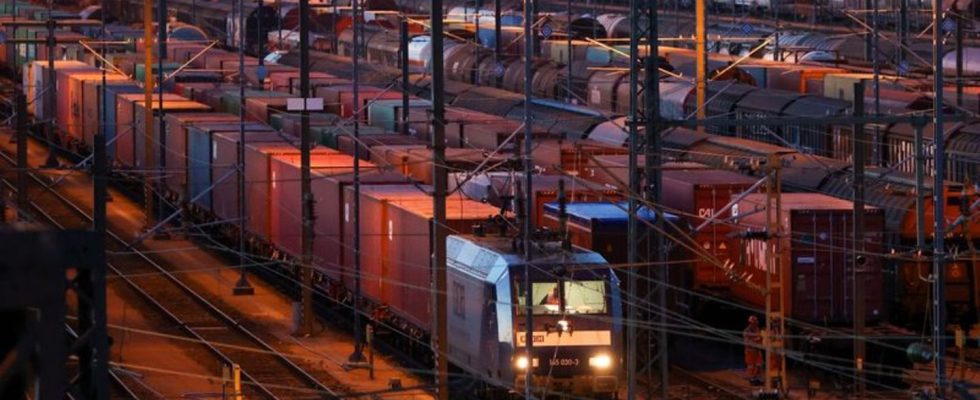Business associations
Demand for the passage of the growth law
The growth package provides tax relief for companies and an acceleration of approval processes. photo
© Bodo Marks/dpa
18 business associations send an incendiary letter to the Prime Minister: The blockage to the Growth Opportunities Act must be resolved. The backbone of the German economy is at stake.
All political decision-makers should work towards passing the law as quickly as possible. “Tagesschau.de” first reported on the letter.
What does the growth package want?
The Federal Council is blocking the Growth Opportunities Act because it leads to a loss of income for the states. That’s why it’s currently in the mediation process with the federal states. The growth package provides tax relief for companies until 2028 and an acceleration of approval processes.
The volume of relief in the mediation process is expected to fall from the planned seven billion euros annually to three billion euros. However, the Union is making its approval of the law dependent on a reversal of the planned elimination of agricultural diesel subsidies.
Dröge: Merz is damaging the economy
The letter, which was signed by, among others, the Federal Association of Small and Medium-Sized Businesses (BVMW), the Federal Association of Taxi and Rental Cars and the Federal Association of Small and Medium-sized IT Companies, further states that the existing blockage of the Growth Opportunities Act in the Federal Council and the insistence on reversing the abolition of agricultural diesel Subsidies ignore the dimension of the structural economic challenges in Germany.
“This political stance does not do justice to the current structural problems in our location. Neither party tactics nor arguments within the traffic light federal government can now delay this important signal.”
The leader of the Green Party in the Bundestag, Katharina Dröge, called on CDU leader Friedrich Merz to give up his blockade of the law. With his behavior, Merz is damaging the economy in a difficult phase, Dröge told the German Press Agency. “The agreement between the federal and state governments has been reached, and the state finance ministers from the CDU and CSU have also agreed to the matter. Only Mr. Merz is relying on a blockade to raise his own profile.” This does not show a sense of responsibility or ability to govern.
Merz: Resistance to the growth law also from SPD countries
Merz rejects the coalition’s calls. “Prime ministers who are appointed by the SPD have just as reservations about this growth opportunities law as we do,” said the Union faction leader in the ARD “Report from Berlin”. He referred to Lower Saxony and Mecklenburg-Western Pomerania.
There were informal discussions about this, said Merz. “There has been a preliminary agreement. The federal government has promised to submit a paper on this,” he explained. But: “Nothing comes.”
Middelberg: Alleged blockade “simply nonsense”
Union parliamentary group vice-president Mathias Middelberg (CDU) called the accusation that the Union was blocking relief for companies “simply nonsense”. “We want much more extensive relief for businesses and small and medium-sized businesses, in particular a fundamental corporate tax reform,” Middelberg told the dpa. These would also be financeable if the traffic light saved on citizens’ money and asylum, for example.
The traffic light parties themselves minimized the Growth Opportunities Act in the process, said Middelberg. The inclusion of agricultural diesel in the negotiations is only appropriate. “It cannot be the case that relief for the economy as a whole is financed through new taxes at the expense of individual small sectors.”

